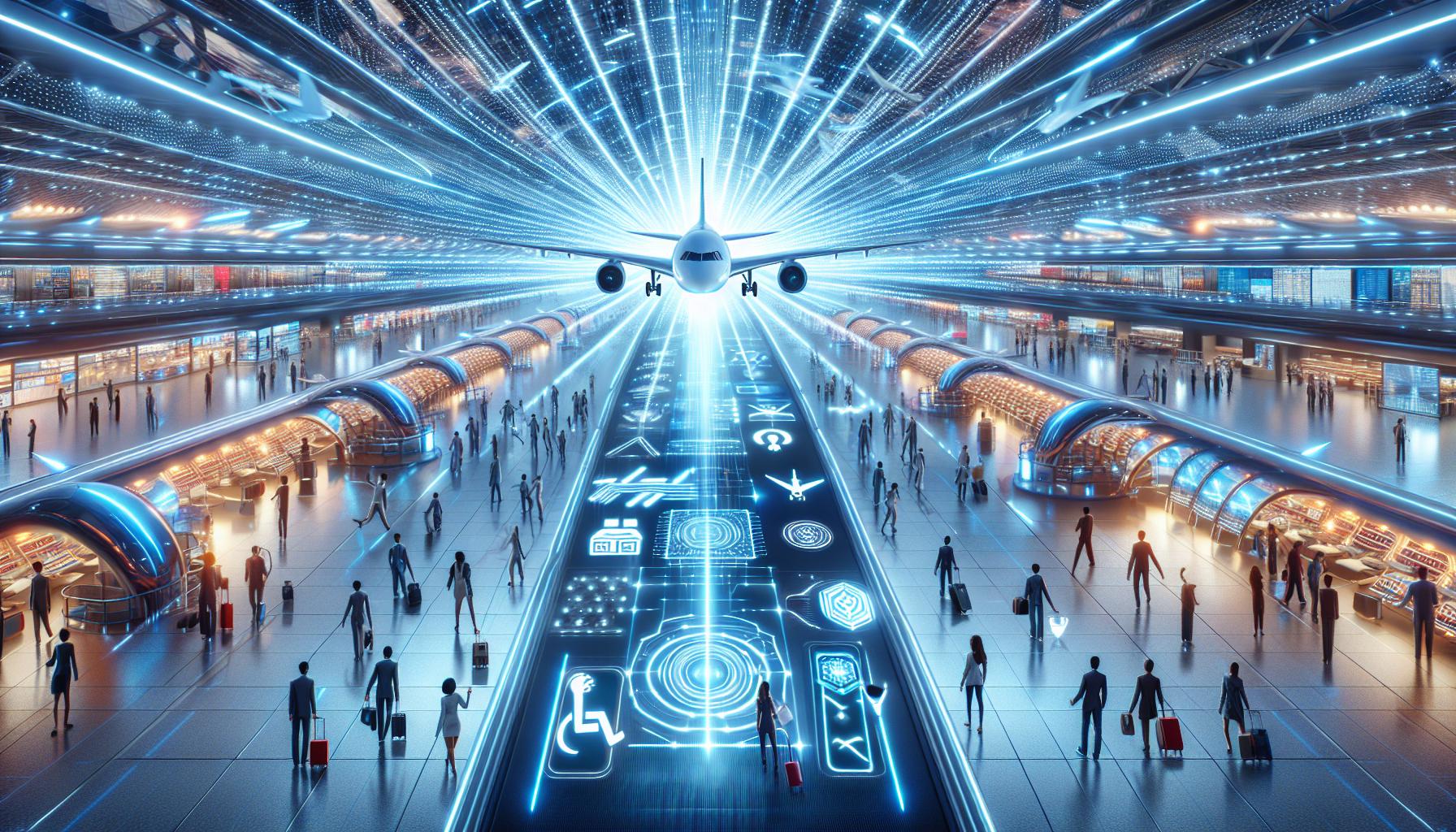AI Technology Revolutionizing the Airline Industry
Airlines across the globe are increasingly turning to generative artificial intelligence (AI) to enhance their operations, benefiting both customers and investors. The utilization of AI systems allows carriers to effectively manage fuel consumption, reduce costs, and lower carbon emissions. Furthermore, AI technology has the potential to significantly improve the passenger experience by minimizing delays, missed connections, and turbulence.
In today's highly competitive market, airlines that embrace new technologies gain a distinct advantage over their counterparts. With profit margins reaching wafer-thin levels, carriers are recognizing the imperative nature of implementing AI in order to stay competitive. The advent of generative AI has already begun to transform the airline industry, streamlining operations and boosting efficiency.
Operational Management: Fuel Consumption and Carbon Emissions
Major US airlines such as Delta Air Lines, American Airlines, and JetBlue have all initiated explorations into the opportunities presented by generative AI. By utilizing AI technology, carriers are able to efficiently manage fuel consumption, navigating complex weather patterns and traffic conditions. Fuel costs represent a significant operating expense for airlines, making it crucial to maximize efficiency while simultaneously reducing carbon emissions.
Practical case studies have already showcased the success of AI implementation. Swiss International Airlines, for instance, utilized AI to predict winds in Switzerland, resulting in a reduction of flight delays and cancellations by over 30% at their primary hub. This impressive outcome led to substantial cost savings of $5.4 million, emphasizing the tangible benefits of AI technology.
Enhanced Passenger Experience: Predictive Route Planning and Reduced Turbulence
Aside from operational advantages, AI brings significant benefits to passengers as well. By employing predictive route planning, airlines can minimize delays, ensuring passengers are less likely to miss connections. Virgin Atlantic's AI passenger management system effectively reduces disruptions and enhances the overall travel experience.
The 2023 Paris Air Show highlighted generative AI as a key industry theme, with the European Union Aviation Safety Agency (EASA) incorporating regulations that support its increased utilization. AI's impact extends beyond operational management to the optimization of fleet performance and maintenance cycles, reducing operational interruptions.
AI technology also plays a pivotal role in minimizing turbulence during flights. Predicting turbulence patterns is challenging, but advanced AI tools enable pilots to choose routes that avoid unfavorable gusts, thereby increasing efficiency. Additionally, these predictive technologies decrease airframe damage, resulting in fewer maintenance visits and subsequent flight delays.
Embracing AI: A Necessity for Airlines
The rapid integration of AI technology within the aviation industry is transforming the way airlines function. It offers immense potential for carriers seeking to remain competitive in a rapidly evolving market. Not only does AI streamline operations, reduce costs, and lower carbon emissions, but it also enhances the overall passenger experience. As airlines continue to capitalize on the benefits of AI technology, customers and investors alike stand to reap the rewards of this monumental industry shift.
Analyst comment
Positive news: Both customers and investors are set to reap the benefits of increasing generative AI use in the airline industry. AI technology can help airlines manage fuel consumption, reduce costs, lower carbon emissions, improve passenger experience, and gain a competitive edge. The implementation of AI in the industry is critical and necessary to stay competitive. The market is expected to see improved operational efficiencies, reduced fuel consumption, lower carbon emissions, and enhanced passenger experiences.













